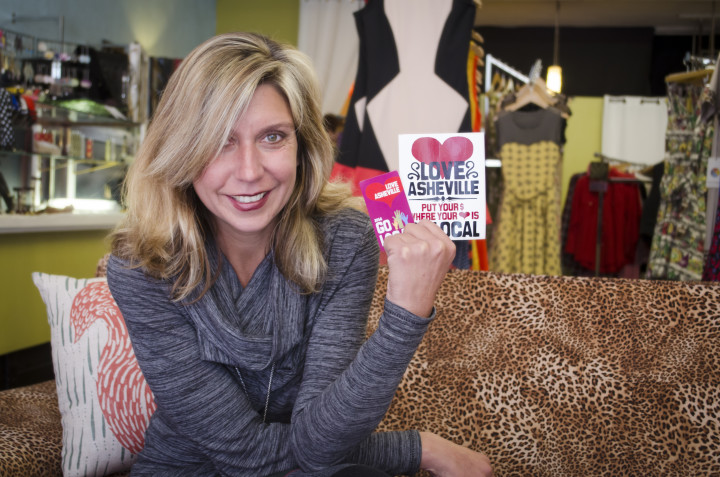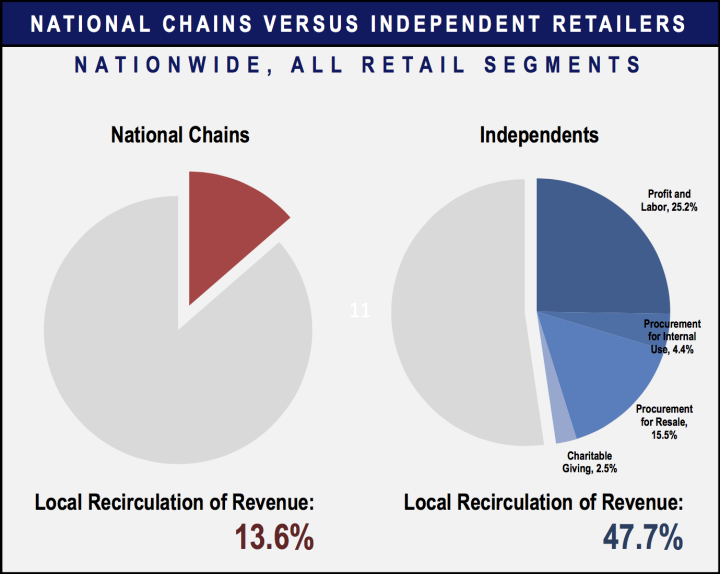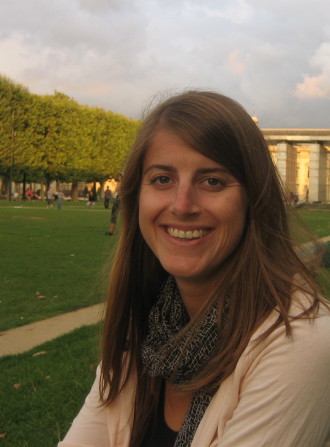There’s a crossroads between Buxton and Banks avenues, even though they don’t intersect. These blocklong, parallel, South Slope streets are lined with places to buy things, eat, drink and make merry: a chocolate factory, a doughnut shop, three breweries, two bars, a beer-and-wine store and the newest barbecue joint in town, among other businesses.
The tiny area contains enough fat and carbohydrates to kill several trolley loads of tourists. But from an economic perspective, these two blocks just might be among the healthiest, most youthful and vibrant in Asheville.
This kind of crossroads exists wherever local businesses are growing and changing: It’s not where streets meet, but where consumers meet local businesses, and where local entrepreneurs meet new ideas.

An upcoming event will be tackling this particular crossroads head-on. At the inaugural Venture Local Fair, which will take over Buxton and Banks Sept. 25-26, “People can learn about cutting-edge ideas for building the economy, democratizing wealth and building better businesses,” says steering committee member Franzi Charen, the director of the Asheville Grown Business Alliance.
The event has two parts. The Friday conference, a daylong, ticketed affair, will feature workshops aimed at business owners, folks looking to start businesses, and community leaders interested in ways to support the local economy. On Saturday, the conference will turn into a street fair. “Of course, anyone is welcome,” Charen explains, but the idea is to create “a festival of locals, by locals, for locals … celebrating what we have.”
A meeting of the minds
Eric Henry tells his customers, “If the only reason you’re coming to TS Designs is price, then there’s really no use continuing the relationship, because you’re always going to find somebody cheaper.” Henry, who is president of the Burlington, N.C.-based apparel company, knows how to make a product’s local nature add enough value to overcome the price gap. “When you’re buying in a global marketplace,” he says, “your only connection is price. But when you’re buying local, there’s a relationship beyond price. Over time, that becomes more connective and stronger.”

Henry, one of Venture Local’s keynote speakers, serves on the board of the Business Alliance for Local Living Economies. He’ll talk about the collapse of North Carolina’s once-thriving garment industry and the recovery he’s seen as consumers “start to realize what the real cost of ‘cheap’ is in the global marketplace.”
A key focus of Venture Local, notes Charen, is considering how businesses can serve the community and their employees while maintaining strength and viability. That includes “ways to democratize ownership” through such vehicles as worker co-ops and employee stock ownership plans. “A lot of baby boomers are retiring now,” she points out, “and one of the ways they can pass on their businesses is to the workers, through ESOPs.” ESOPs, or employee stock ownership programs, are commonly used by S-corporations, which are one of two IRS-defined corporate types. This model provides a stable alternative to traditional pensions, giving employees an incentive not to change jobs and a sense of ownership that can enhance productivity and innovation.
Henry, meanwhile, will also be part of a panel discussion on “benefit corporations” — a way to show customers that a business cares about more than just the bottom line. TS Designs, says Henry, was the first company in the state to be certified as a “B-corp,” and he’ll share his experience of obtaining that status and “operating under the ‘triple bottom line’ of people, planet and profit.”
The conference part of Venture Local is a companion piece to the Bringing It Home conference, held at A-B Tech this spring. “We want the two events to work back to back, continuing the conversation and growing together,” Charen explains.
Redesigning the system

Downtown Asheville has more out-of-town shoppers these days, and the recent announcement that an Anthropologie store will be opening on Lexington Avenue has sparked concern about the long-term impact of nonlocal chain stores on the city’s central business district.
Big-budget chains, says Jamee Haley, executive director of Lowcountry Local First in Charleston, S.C., “are often willing to take a loss in sales just to have a presence” on a popular street. And the resulting competition for storefronts can drive rents high enough to push out small, local businesses completely. Meanwhile, the recent increase in the occupancy tax that funds the Buncombe County Tourism Development Authority “will turn the tourism marketing dial to 11,” Charen predicts.
Consumers, says Henry, often aren’t aware of the full impact of their purchases, basing their decisions solely on price. But that price may not reflect such externalized factors as the environmental impact of the way the energy was produced to get the nonlocal product to Asheville, or the economic impact of the money being siphoned off to a distant corporate headquarters, rather than recirculating locally.
When money leaves town, it makes the whole community poorer, says Meg Jamison, project manager at the Asheville Design Center. A 2012 Civic Economics survey found that for every $100 spent at a national chain retailer, only $13.60 recirculates locally, compared with $47.70 if the same $100 were spent at an independent retailer.

Venture Local, says Charen, aims to “explore real alternatives and take them from the margins into the mainstream, moving away from the rhetorical critique and bringing promising, small-scale experiments to the table. The solution is in the design of the system, and we think Asheville is ready for a shift.”
On Sept. 26, Buxton and Banks avenues will be closed off, hosting a celebration of local businesses as well as music, entertainment, food and drink. Businesses in the immediate area, says Charen, are creating festive programming, ranging from Sow True Seed’s Garlic Fest to Empyrean Arts’ trapeze classes to French Broad Chocolates’ factory tours. There’ll be tastings, workshops, interactive DIY booths and kids activities.
At the same time, notes Jamison, “We want our residents and visitors to be well-versed in the problems facing our city, and to join together in supporting a local, living economic model that will allow us all to thrive.”
Charen agrees, saying the event will bring organizations and people together “to help reimagine a system that protects our community’s [economic] ecosystem — one that isn’t based on endless growth and expansion.”
Standing at the crossroads
Many Asheville businesses successfully compete with national brands despite offering higher-priced products. Throngs of people pack the area’s various tailgate markets, buying local cheeses, meats and vegetables that cost more than the widely available food from distant locations. Part of the appeal is the fact that those foods are produced by members of the consumer’s own community.
Henry wants to apply those same principles to other products. Clothing buyers, he says, are becoming dissatisfied with the lack of transparency in the global marketplace; he urges consumers to “know where your clothes are made.”
Jamison takes a similar view. “People visit or move to Asheville because they’re attracted to its unique sense of place, its unique people, unique businesses and one-of-a-kind setting,” she maintains. “They leave the homogenized suburbs and big cities behind to find an environment that inspires them and feeds their soul, not the same shops and stores as the next town over. … This doesn’t mean that Asheville won’t or cannot change over time, but understanding the way it changes is truly important.”




Can’t wait to be back in Asheville to join Venture Local’s conversation as part of a Community Capital Panel at 10:45am at Catawba Brewing!